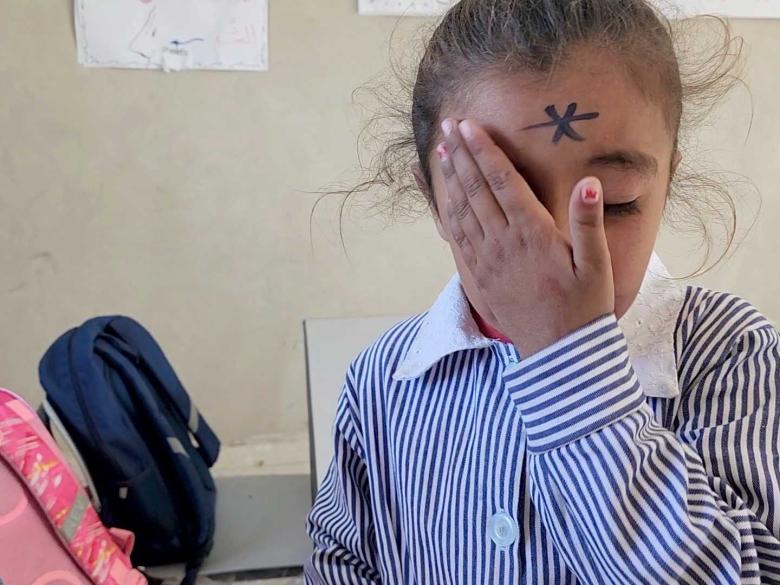This morning, 23 November 2022, at around 9:00 A.M., Israel demolished a primary school built in the Palestinian community of Khirbet a-Safai al-Foqa in Masafer Yatta, in the part of….

This morning, 23 November 2022, at around 9:00 A.M., Israel demolished a primary school built in the Palestinian community of Khirbet a-Safai al-Foqa in Masafer Yatta, in the part of the South Hebron Hills the military declared Firing Zone 918. The forces removed the tables and chairs from the classrooms and confiscated them. The demolition was greenlighted by Supreme Court Justice Isaac Amit, who cancelled the temporary order he issued yesterday freezing the demolition.
The school, financed by donations, was built about three weeks ago. Three teachers taught the 23 pupils, who are in 1st to 4th grade and come from the communities of a-Safai al-Foqa, a-Safai a-Tahta, and Maghayir al-‘Abid. The school was planned to extend in future through the 9th grade. Until it was established, the children attended school in the community of Khirbet al-Fakhit. However, recent months saw constant harassment by soldiers, including detaining children and teachers at checkpoints and confiscating the latter’s cars. The new school was meant to enable the children to study undisturbed.
Israel has also issued demolition orders for the school in Khirbet al-Fakhit and for the schools in the neighboring communities of Khirbet Jenbah, Khirbet al-Majaz and Khallet a-Dabe’, in which 44 teachers teach a total of 172 children.
In early May 2022, Israel’s Supreme Court dismissed the petition submitted by Palestinians who live in the area declared Firing Zone 918, giving the state the go-ahead to expel them. This amounts to permitting the state to commit a war crime. Since then, Israel has ramped up measures it has employed for years to make the residents’ lives so unbearable they leave. This policy includes barring local Palestinians from building homes and connecting to water, power and road networks, restricting their movement and enabling daily settler violence against them.
About a month ago, B’Tselem requested the urgent intervention of the International Criminal Court in The Hague, in order to force Israel to change its policy in the area and allow the residents to go about their daily lives.
